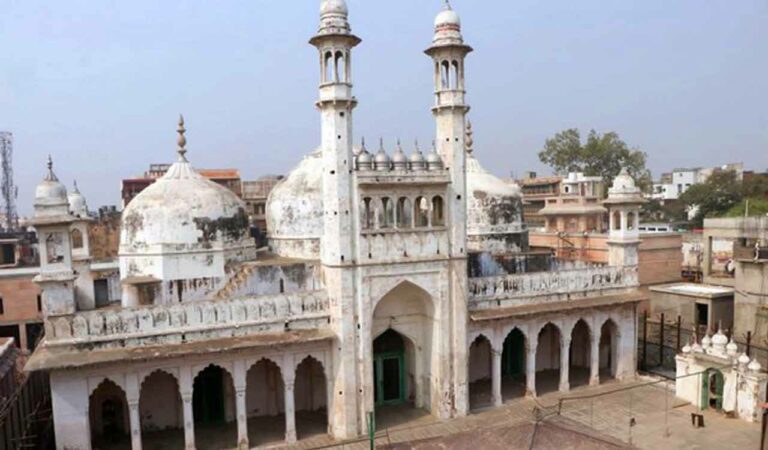
Lawyers representing the Masjid Committee moved the Supreme Court Registrar requesting for urgent hearing of its application seeking status quo at the mosque site.
Updated On - 1 February 2024, 05:00 PM
New Delhi: The Supreme Court on Thursday asked the Masjid Intezamia Committee of Gyanwapi mosque of Varanasi to approach Allahabad High Court against the Varanasi District Court’s order which allowed Hindus to perform prayers of deities inside the southern celler of Gyanvapi mosque.
Lawyers representing the Masjid Committee moved the Supreme Court Registrar requesting for urgent hearing of its application seeking status quo at the mosque site.
The lawyers said the Registrar conveyed to them that Chief Justice of India DY Chandrachud had asked them to approach the High Court.
The Mosque committee filed an urgent application seeking status quo at the mosque site contending that the administration was acting in ‘hot haste’ soon after the Varanasi Court’s order to perform the “Puja” at night.
The application said that these actions, occurring in the middle of the night, aimed to preempt any legal challenge by the mosque managing committee.
On January 31, the Varanasi district court allowed the Hindu side to offer prayers in the southern cellar of Gyanvapi mosque. The court directed the Varanasi district magistrate to make arrangements within seven days for “puja” to be performed by the Hindu side and a poojari nominated by Shri Kashi Vishwanath Temple Trust.
After the order of the court, “puja” and “aarti” were performed in the early hours.
The district court has issued the order on the plea of the head priest of Acharya Ved Vyas Peeth temple, Shailendra Kumar Pathak Vyas, seeking worship of Shringar Gauri and other visible, and invisible deities in the cellar of the mosque. Vyas is the scion of the family which was performing “puja” in this cellar till December 1993.
The plea says Vyas’s maternal grandfather, priest Somnath Vyas, used to perform prayers there till 1993 when the cellar was closed by the authorities.
The ASI survey, ordered by the same court, in connection with a related case, suggested that the mosque was constructed during Aurangzeb’s rule over the remains of a Hindu temple.





Leave a Reply